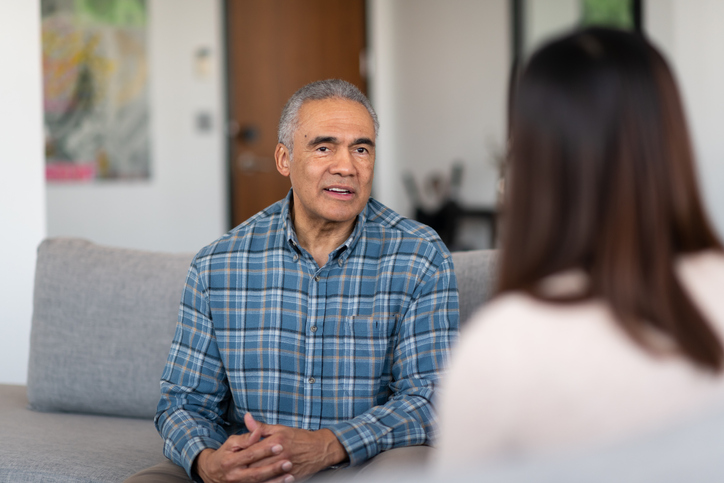Depression is a serious mood disorder that can affect the way you think, feel, and act. It can happen to anyone and it is not a normal part of aging. However, older adults are at an increased risk for developing depression due to a rise in chronic illness and isolation as we age.
First, the good news: According to the National Institute on Aging, studies conducted over the years have shown that most older adults feel satisfied with their lives. Though, because of this, depression can be something that is difficult to diagnose or identify. That’s why it’s important to know the most common signs of depression and the different ways to overcome it.
Common Signs of Depression
Depression does not look the same for everyone, but there are a number of signs that may signal it’s time to reach out to a medical professional for help. Keep in mind that some of these signs may appear over time. Here are some common signs of depression, according to the CDC:
- Feelings of sadness or anxiety that last for weeks at a time
- Feelings of hopelessness, and/or pessimism
- Feelings of guilt, worthlessness, and/or helplessness
- Irritability, restlessness
- Loss of interest in activities or hobbies you previously enjoyed
- Fatigue and decreased energy
- Difficulty concentrating, remembering details, and making decisions
- Insomnia, early-morning wakefulness, or excessive sleeping
- Overeating or appetite loss
The CDC also lists persistent aches or pains, headaches, cramps, or digestive problems that do not get better, even with treatment, as another possible sign of depression. A medical professional will be able to help determine if depression is a cause of these issues.
How to Overcome Depression
As noted by the National Council on Aging, depression isn’t necessarily something that can be prevented. However, there are some steps you can take to help overcome depression. Remember that you are not alone in your battle with depression. Help is available.
Seek Treatment From a Medical Professional
The first thing you should do if you or your loved one are exhibiting signs of depression is seek treatment from a medical professional. If you or your loved one are not happy with your experience after seeing one professional, then get a second opinion from another.
Depression is a serious condition that requires medical treatment. This may include, but is not limited to, antidepressant medications, counseling, and the creation of a custom wellness plan. A medical professional should be your most trusted partner in your fight against depression.
Work Toward Building Healthier Habits
One way to boost your mental wellness and emotional resilience is to develop healthier habits. Focus on things that you can control and improve on such as building better sleep habits, staying active, getting more involved in your community, and eating healthier meals.
Building healthier habits isn’t always easy and it can be helpful to seek outside help in these pursuits, in addition to seeking treatment for any health conditions you might have.
Find Community & Forge New Friendships
Seniors are at a greater risk for social isolation and loneliness — and both of these conditions can contribute to depression. If you are feeling isolated, it might be worth looking into the possibility of moving into a senior living community. According to the CDC, some estimates of major depression in older adults living in a community range from less than 1% to about 5%.
If you have loved ones you can reach out to, continue to make an effort to stay in touch. Some people also develop a stronger sense of community after seeking out volunteer opportunities.
Connect With Others at Friendship Village of South Hills
Friendship Village of South Hills is a senior living community in Upper St. Clair, Pennsylvania (near Pittsburgh), that provides an array of opportunities for you to continue to live your best life and make new friends. It’s easier to socialize and live a healthier lifestyle when you have the full support of a community. And we believe you’ll find that support at Friendship Village of South Hills.
Contact us or complete the form below to learn more about what your life here could be.


